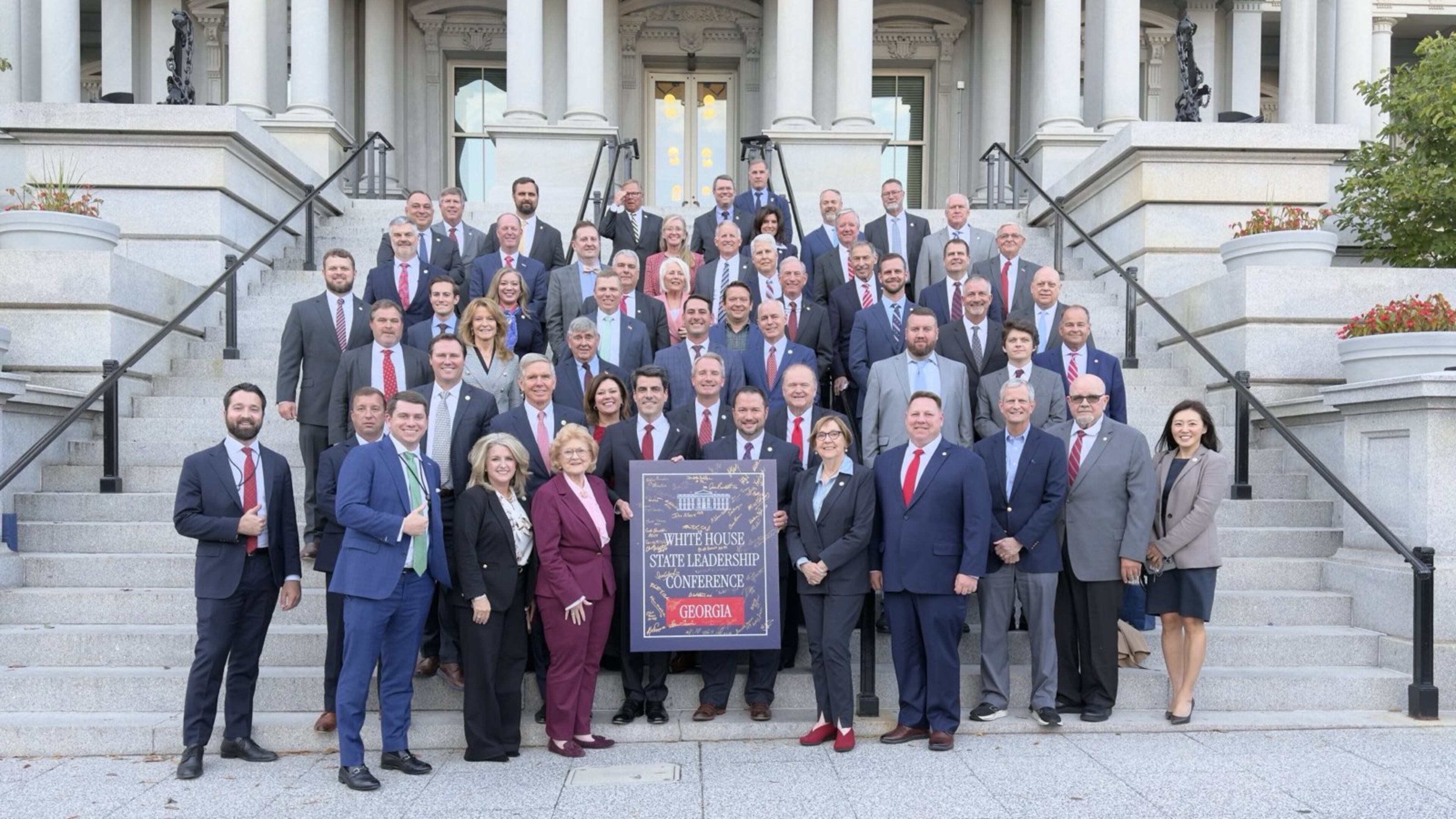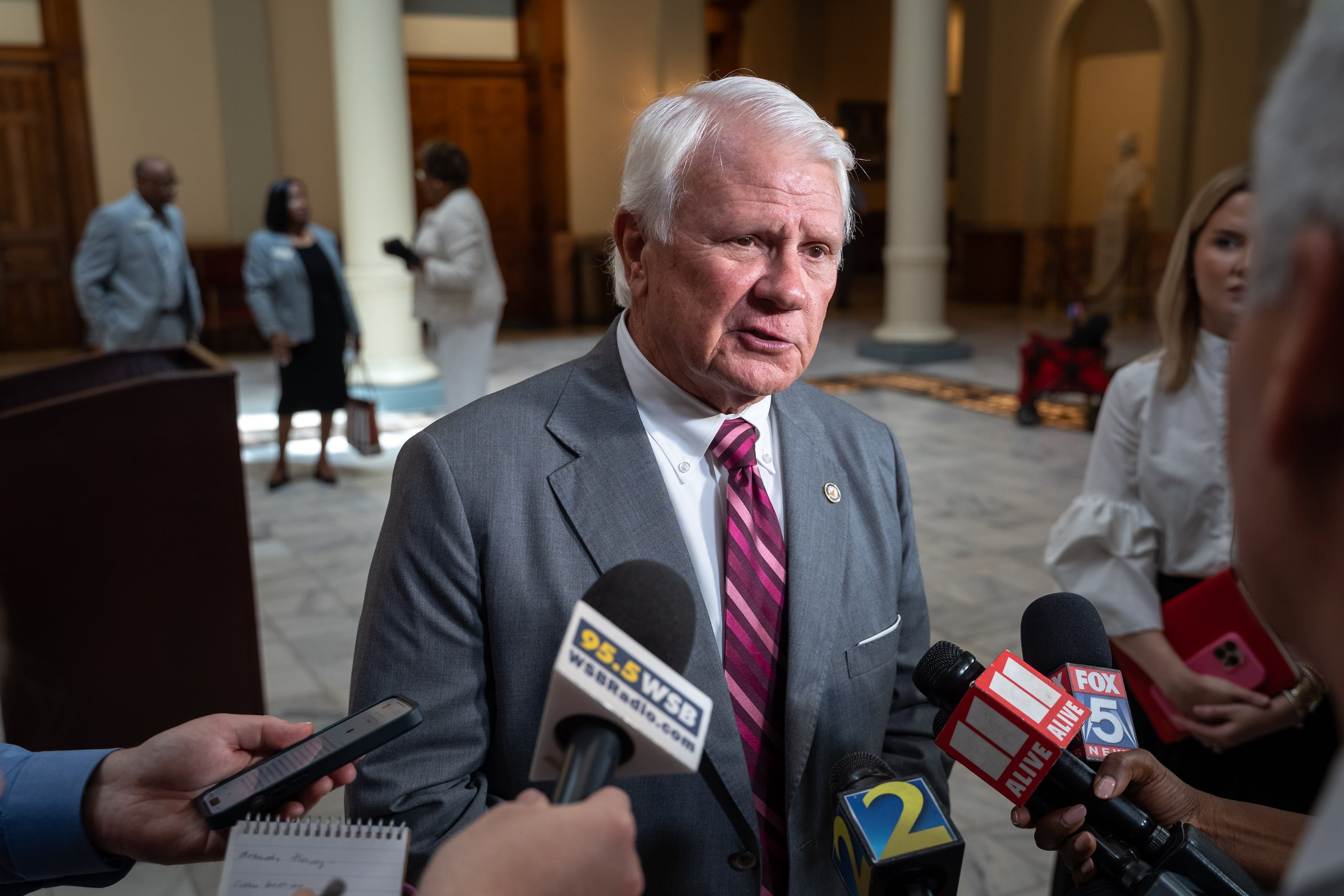Georgia isn’t redrawing districts despite Trump’s push. At least for now.

When dozens of Georgia Republican lawmakers made a pilgrimage to the White House last week, their discussions centered on MAGA-friendly policies and ways to advance President Donald Trump’s agenda in the upcoming legislative session.
What they didn’t discuss, attendees said, was Trump’s ongoing campaign to redraw congressional maps to cement Republican control of the U.S. House, according to a half-dozen legislators and a White House official who were not authorized to speak publicly about the meeting.
While Trump has pressed other GOP-led states to strengthen the party’s hold on Congress — including a new North Carolina map last week designed to give Republicans another seat — senior Georgia Republicans say there’s no such effort underway here. At least not yet.

Some lawmakers have privately expressed surprise that Georgia has thus far escaped Trump’s attention, particularly as other Republican-controlled states have bowed to pressure.
Two things may account for that. Redrawing district lines in Georgia could make some Republican seats in the closely divided state competitive. And any changes could be preempted by a pending U.S. Supreme Court decision on the Voting Rights Act.
Officials say they don’t expect a new push in the Republican-controlled General Assembly until the high court’s ruling, expected in the spring. Their decision could limit lawmakers’ ability to use race as a factor in drawing maps by weakening a key provision of the landmark civil rights legislation.
The court’s conservative majority last week indicated it might strike down a majority Black congressional district in Louisiana, a precedent that would clear the way for state legislatures to eliminate majority Black and Latino districts that Democrats usually win. Until a ruling, which isn’t likely until next year, it appears any overhaul of Georgia’s maps is on hold.

Legislative leaders indicated as much. House Speaker Jon Burns’ office said another round of redistricting is not on the radar.
“The House deals with the facts, not hypotheticals,” said Kayla Green, a Burns spokeswoman. “Any comment on this matter prior to the court’s ruling would be premature and speculative.”
Allies of Lt. Gov. Burt Jones and other Senate GOP leaders said they share the same stance. And Trump’s administration isn’t pushing them on the issue, at least not yet, according to senior officials.
Democrats are poised for a fight if the dynamic shifts.
A report from Black Voters Matter and Fair Fight Action said if the Supreme Court weakened the Voting Rights Act Republicans could eliminate two “minority opportunity” districts in Georgia.

State Rep. Saira Draper, an Atlanta Democrat who is one of her party’s voting rights experts, said she backs legislation to limit redistricting to once each decade.
“This will force elected officials to be responsive to the needs of their constituents and evolve with them — or be replaced by someone who can,” she said.
“Whether it’s the Republicans who are in charge or the Democrats, it’s never appropriate for elected officials to choose their voters.”
‘The most political activity’
State legislators typically redraw political maps near the start of each decade, using new U.S. Census data to adjust House districts to reflect population changes. Redistricting in the middle of a decade is less common — and often far more contentious.
But Trump and his allies began urging a gerrymander months ago, worried about a Democratic takeover that would allow them to impede Trump’s agenda. Democrats need to gain three seats next year to flip control of the House, and the president’s party historically loses seats in the midterm elections.
The first state to heed Trump’s call was Texas, where Gov. Greg Abbott overcame internal skepticism and fierce Democratic opposition to push through a map that could yield up to five new GOP seats. Missouri lawmakers followed with a revised map that could help Republicans win another seat.
Some Republicans in Indiana, Kansas, Louisiana and Nebraska are taking steps to pave the way for a redrawing of their boundaries. And North Carolina lawmakers last week approved changes to reshape the state’s only swing district, now held by a Democrat.
California Gov. Gavin Newsom has countered with an effort that could help Democrats flip as many as five Republican-held districts in his deep-blue state. But it first must be approved by voters in a Nov. 4 election.
In Georgia, lawmakers are no strangers to mid-decade map revisions. Since 2006, more than 70 legislative and congressional districts have been redrawn outside the normal redistricting cycle, according to Fair Districts GA, a group that advocates for more neutral maps.
That includes a broad overhaul in 2006 engineered by the newly elected GOP majority, which came after the a federal appeals court tossed out a partisan gerrymander approved by Democrats.

The most recent revisions came in 2023, when legislators revamped districts in metro Atlanta and Macon after a federal judge ruled the previous maps illegally weakened minority voting power and ordered new more majority-Black districts.
The new maps didn’t result in any changes to the political balance of the state’s congressional delegation — which features nine Republicans and five Democrats across Georgia’s 14 districts — and they minimized GOP losses in the Georgia House.
If Republicans go back to the drawing board again, they could conceivably target Democratic U.S. Rep. Sanford Bishop, the longest-serving member of the state’s delegation. He’s held his southwest Georgia district since 1993, though even minor shifts in precinct lines could turn it into swing territory.
But trying to flip additional seats would require slicing up metro Atlanta’s map, said Charles Bullock, a University of Georgia political scientist who authored a book calling redistricting “the most political activity in America.”
“It gets a lot harder. If you can draw pie slices, you can tilt the playing field,” said Bullock. “But there would be a tradeoff there, and some Republican districts could become a lot more competitive.”



